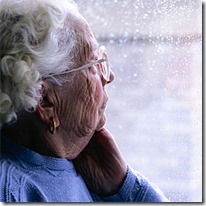 According to former MLB pitcher Vernon Law, “Experience is a cruel teacher. She gives the test first, the lesson afterward.”
According to former MLB pitcher Vernon Law, “Experience is a cruel teacher. She gives the test first, the lesson afterward.”
My neighbor quoted Law the other day in regard to the lessons she learned caring for her father. If she’d only known then what she knows now as a result of her experience, she said, the journey might have been better for both her dad and herself.
This rang in my ears as I recalled a conversation I had with a woman named Mary over the holidays.
This strong, stubborn Irish woman, who had lived through many challenges in her life without so much as a tear, was in front of me sobbing.
“I never thought I would end up this way,” she said.
“What way?” I asked.
She recounted how she’d worked since she was a young teen and saved money with her sister to come to America. Once in the United States, she married and raised three boys. She and her husband put the boys through Catholic school, then college, then graduate school for two of them.
But in her later years she lost her home, her savings depleted from paid care for her husband with Alzheimer’s. Widowed at 83, her only option was a Medicaid bed in an assisted-living facility far away from her neighborhood of 50 years.
She described her home today: a locked facility where she is unable to walk freely out the front door. She is without pocket money. No meal except breakfast has enough taste to warrant eating. She can’t understand how in her final years—years that were supposed to be spent in her own home enjoying retirement—she is in a place with so little freedom.
Mary’s story is all too common.
Ten years ago, at age 73, she and her husband owned a $300,000 mortgage-free home. They had a savings account of $80,000 and no debt. If she had known then what she knows now, so many decisions would have been different.
In her generation, what couple planned for the long-term care of a spouse with Alzheimer’s?
In fact, it was inconceivable to her that, regardless of their health conditions, she and her husband would not live out their final years in their own home.
Mary’s situation should serve as a cautionary tale to those of us planning for our future. What is important to us in our housing as we get older? Living safely, remaining active and independent, remaining connected to the community or managing our cost of living? Maybe it is all those things.
How will life transitions like retirement, illness, divorce, loss of our driver’s license or changing finances affect our housing needs?
These are important questions to consider now so that we allow for greater choice in our future.
Being older can last a long time, so the size of our home, the resources that come with it and our own personal needs and wants may change over that time. Housing in the second half is a complex picture that demands creative, flexible, affordable, easy and adaptable solutions.
So what housing options are out there and how will life affect our choices?
From 5:30 to 7 p.m. Tues., Jan. 28, Senior Concerns will host a presentation titled “Creative Housing Choices for the Second Half.” It’s part of a commitment to provide life-planning education for seniors.
Annette Broersma, a geriatric counselor, and I will moderate the presentation.
To reserve a seat for this seminar, please call Senior Concerns at (805) 497-0189. Light refreshments will be served.
A $10 donation per family will be gratefully accepted.
We shouldn’t let Mary’s experience go unheeded. It can be just the impetus some of us need to plan for good housing for life.
More ...
Tags: Medicaid,housing options in the second half